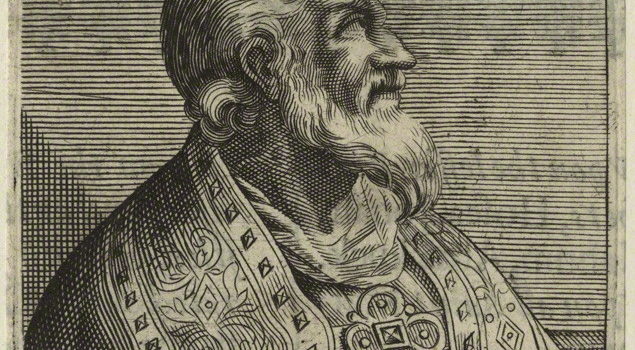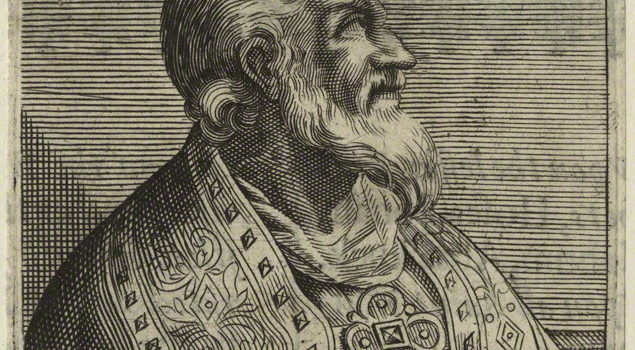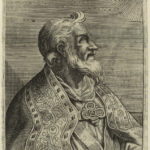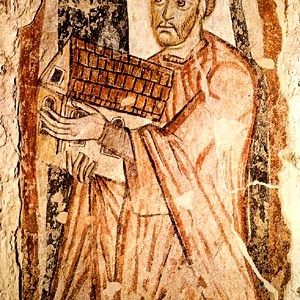The English bishop and theologian St. Anselm (1033-1109) was one of the Church’s greatest medieval thinkers. Anselm was born of a noble family. At the age of fifteen he desired to enter a monastery, but his father forbade this. Anselm thereupon abandoned religion for a number of years and adopted a carefree lifestyle. He later repented of this, however, and in 1059 he entered the monastery of Bec in the French province of Normandy.
After three years, Anselm was elected prior (an important position within the community), and fifteen years after that, the monks unanimously chose him as abbot. Anselm devoted himself to scholarship and prayer during his thirty-four years in the monastery. He was one of the leading figures in Scholastic theology, which attempted to uncover religious truths through rational arguments and propositions (indeed, he became known as the Father of Scholasticism).
At the request of his community, he published his theological works, the best-known of which is Why God Became Man. Anselm is also known for a definition or “proof” of God (“God is that of which nothing greater can be conceived”). Anselm’s life entered a new phase in 1093 when he was appointed Archbishop of Canterbury; from then on he was constantly defending the Church’s rights against the English monarchs William II and Henry I. Though Anselm was personally a kind and gentle person (and also, by that time, in frail health), he uncompromisingly upheld the Church’s position. His courage impressed many, but William had him exiled.
Anselm went to Rome for three years, returning to England upon William’s death. King Henry I, however, was also unfriendly to the Church, and Anselm ended up spending a further three years in exile. St. Anselm finally returned to England, and died at Canterbury in 1109; he was canonized in 1720 and declared a Doctor (an eminent and reliable teacher) of the Church.
Lessons
1. Parents have a duty of encouraging their children’s vocations; if they forbid a particular response to God, the children may abandon the faith entirely — and the parents will share the responsibility for this. Fortunately for Anselm’s father, his son later heard and answered God’s call.
2. Reason and logic, while not a substitute for faith, can help people become aware of God’s existence.
3. There are many ways of serving God; sometimes the same person may be called to two very different vocations — in which the earlier helps prepare him or her for the later. St. Anselm’s years of prayer and study helped “gird him for battle” in his defense of the Church’s rights against the English kings.
From Johnnette Benkovic’s Graceful Living: Meditations to Help You Grow Closer to God Day by Day

God, let me know you and love you so that I may find my joy in you; and if I cannot do so fully in this life, let me at least make some progress every day, until at last that knowledge, love and joy come to me in all their plentitude.
— A prayer of St. Anselm
Today I will look “at least [to] make some progress” to find all my joy in God, Who gave me life. St. Anselm, pray for me.
Other Saints We Remember Today
St. Conrad (1894), Religious
image: George Glover, Public domain, via Wikimedia Commons












